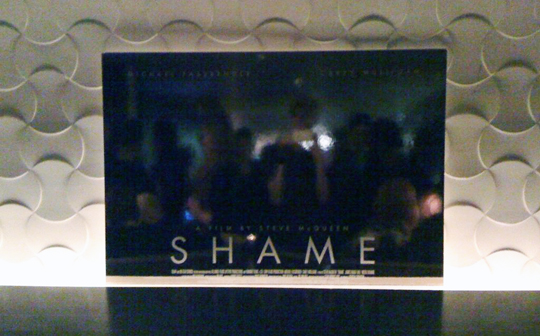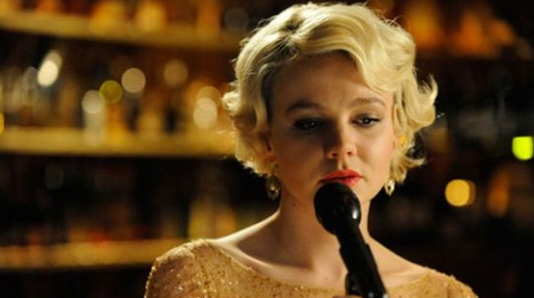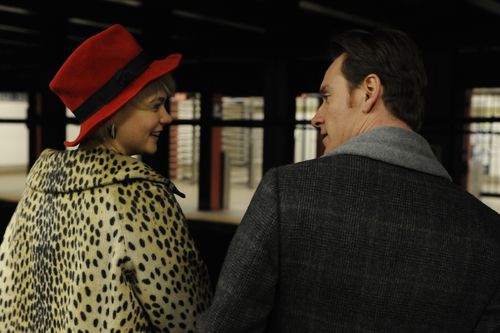Kurt here. I'll admit I'm not as well-versed in the work of David Cronenberg as a 27-year-old cinephile should be, but I know enough to confidently conclude that A Dangerous Method, while every bit worth seeing, won't go down as a definitive entry in the Canadian maestro's oeuvre. A bubbling marriage of the sexual and the cerebral, the material surely speaks to Cronenberg's penchant for exploring the curious links between mind and body, but the resulting film doesn't haunt, nor does it even consistently provoke, short of whatever reactions are elicited from the recurring spanking of Keira Knightley's bum. A prestige piece through and through, A Dangerous Method is the intersection of a handful of prior collaborators, teaming Cronenberg with muse Viggo Mortensen, Dangerous Liaisons and Atonement screenwriter Christopher Hampton (who here adapts his own 2002 play, The Talking Cure), and Atonement leading lady Keira Knightley. It seems an almost experimental assemblage of talent, with Cronenberg's newfound Oscar-friendliness put into the mix with some very Oscary playmates. It could be grander, it could be harder, it could be better.
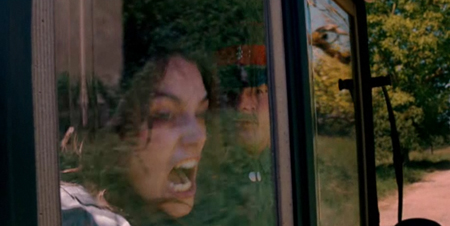
But damn, is it watchable, especially in regard to Knightley's performance as Sabina Spielrein, the unhinged, yet shrewd, Russian fetishist who ultimately comes between psych titans Sigmund Freud (Mortensen) and Carl Jung (Michael Fassbender). A violently screaming Sabina is the first thing you see after some ink-on-paper credits, and it's immediately arresting, if only because you've never seen Knightley so...loud. This is easily Knightley's most impassioned and most transformative performance, one that's sure to have Oscar calling in whatever category she lands in (note to voters: it's a leading role). For a long while, I was having a hard time deciding if her turn was too shrill or dead-on, but I'm leaning toward the latter, despite the lingering sense that she's operating on a wild plane independent of the film. Ably tackling a convincing accent, and looking even more gorgeously gaunt than usual, Knightley plays the sexually-scarred Sabina like a slinky Linda Blair, her deep, dark and gyrating confessions to Jung trickling out as if part of a deep-seated, slow-motion seizure that's long been brewing in her groin. It's uncomfortably compelling, and it gains interest as the film proceeds, as Sabina proves to be much more than her demons.
Mortensen also slips deep into his character, in a performance that's also likely to have at least some amount of gold thrown at it. Behind dark contacts and a good bit of facial hair, he steps into uncommon character-actor territory, to which his handsomely-aging face lends itself well (he's also best with the movie's easy, unassuming humor, which finds a mature, yet playful, way to fool with so much clinical sex talk). Faces, I'd say, are Cronenberg's greatest collective asset here, and one he exploits like a pro. I'm avoiding a great deal of plot, because I don't feel that gripping storytelling is the movie's strong suit. But the not-quite-million-dollar mugs of Knightley, Mortensen and Fassbender, all of whom have enough uncannily symmetrical beauty to ensnare you, but enough slightly-offbeat features to keep things interesting, are what hold you from moment-to-moment and stick with you when you leave. Fassbender, bless him, is clean-cut and awkwardly dashing, yet he shares Knightley's cadaverous look, his well-formed bones exceptionally pronounced. And Mortensen gets a lot of mileage out of those wrinkles, swapping out smolder for aloof wisdom.
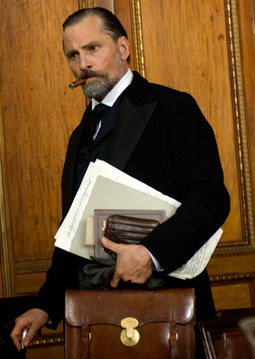 Of the milieu on display, I found it most interesting to consider a group of characters evaluating their behaviors while Freudian explanations were still being established. Can we imagine a world without them now? Where motivations and actions aren't looked upon with some degree of id assessment? Such thoughts make A Dangerous Method feel important, at the very least in relation to the whole of 2011's output. What burrowed into my head, though, were those faces and that feral performance from Knightley. Getting in the spirit, I kept wondering what she drew from to get into character, what conscious and unconscious Knightley demons brought Sabina to life. Whatever the answer, it worked, as Knightley's method, pardon the pun, is a dangerous one indeed.
Of the milieu on display, I found it most interesting to consider a group of characters evaluating their behaviors while Freudian explanations were still being established. Can we imagine a world without them now? Where motivations and actions aren't looked upon with some degree of id assessment? Such thoughts make A Dangerous Method feel important, at the very least in relation to the whole of 2011's output. What burrowed into my head, though, were those faces and that feral performance from Knightley. Getting in the spirit, I kept wondering what she drew from to get into character, what conscious and unconscious Knightley demons brought Sabina to life. Whatever the answer, it worked, as Knightley's method, pardon the pun, is a dangerous one indeed.

Previously on NYFF
The Loneliest Planet brushes against Nathaniel's skin.
Melancholia shows Michael the end of von Trier's world.
 Sunday, October 16, 2011 at 2:15AM
Sunday, October 16, 2011 at 2:15AM 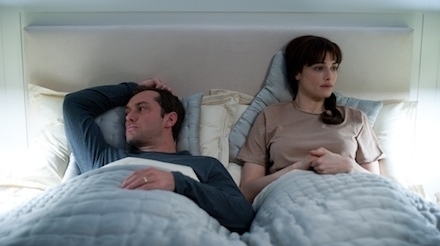 Jude Law and Rachel Weisz as unfaithful marrieds.
Jude Law and Rachel Weisz as unfaithful marrieds.


